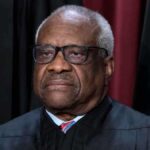

The Minnesota Supreme Court is set to hear arguments for a new law that would restore voting rights to convicted felons who are on parole, probation, or work release.
Initially, the state restored voting rights to felons after they were off parole or probation and had paid their restitutions. In March 2023, Gov. Tim Walz (D-MN) approved House File 28, which allowed felons who were still on probation, parole, or supervised work release to vote despite the status of their conviction. The Minnesota Voters Alliance, a conservative organization self-described as “election integrity watchdogs,” attempted to thwart the new bill with a lawsuit in June.
“Even if we assume that the words ‘civil rights’ as used in Article VII, Section 1, were intended to broadly include any right that a person has, it does not follow from the fact that some of those rights may be restored upon release from incarceration that all civil rights must be restored,” the MVA alleged in the lawsuit. “Different rights may be restored at different times (and may be limited in different ways at different times).
“Indeed … the constitutional rights of parolees and probationers may be limited in ways that the rights of persons who have completed their sentences may not be,” the group continued.
After the state judge dismissed the case, the MVA appealed the decision and called for the Minnesota Supreme Court to hear the case. Chief Justice Natalie Hudson granted the appeal and will hear arguments on April 1.
Democratic state Rep. Emma Greenman, who is also a voting rights attorney, said she was surprised by the lawsuit and doesn’t think it will prove successful.
“While I’m confident the right to vote for Minnesotans on probation and parole will survive this meritless challenge, this is a shameful attempt to use the legal system to sow doubt and confuse voters in order to suppress the vote,” she said.
CLICK HERE TO READ MORE FROM THE WASHINGTON EXAMINER
Under the new law, 55,000 people in Minnesota who are convicted felons but are not incarcerated will be able to vote in the next election, according to the Minnesota Reformer’s reporting. Washington, D.C., Vermont, and Maine allow people who are incarcerated to vote, while some 38 states restore voting rights to convicted felons after their release.
The lawsuit comes as many Democratic leaders have defended felon re-enfranchisement in recent years, saying that it increases people’s access to democracy, ahead of the 2024 elections. Meanwhile, the Republican Party has been trying to tighten voting laws due to election security concerns after the 2020 cycle.







